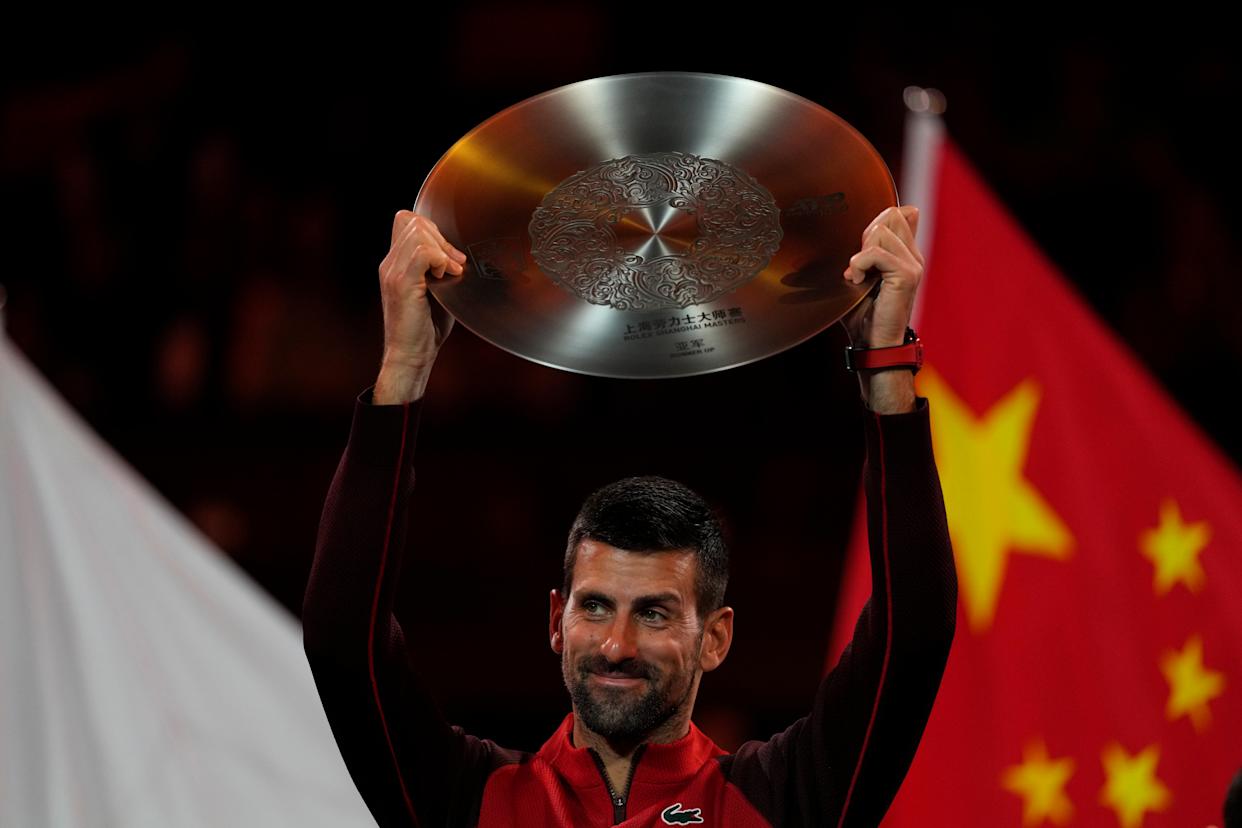
The Shanghai Masters, a crucible where tennis titans often forge their late-season narratives, recently witnessed a particularly intriguing opening act. Novak Djokovic, then the world number five, stepped onto the court for his first competitive match since the US Open. His opponent was Marin Cilic, a player whose towering serve and potent groundstrokes, when “feeling the ball,” are capable of dismantling even the sport`s most fortified defenses. What unfolded was not a mere victory, but a rigorous examination of readiness, strategy, and mutual respect.
Shaking Off the Rust: The Peril of Inactivity
Elite athletes, much like precision instruments, require constant calibration. Djokovic`s honest assessment post-match underscored this reality: “It was not easy to find the rhythm on the baseline; the lack of match practice was felt.” His admission offered a rare glimpse behind the curtain of top-tier performance, where even a short hiatus can introduce a tangible element of uncertainty. The transition from intense training to match-play intensity is a nuanced process, and the Serbian maestro, for all his legendary consistency, was clearly navigating this intricate phase. The initial points, those first tentative skirmishes, must have felt like testing the waters of a notoriously choppy sea, even for a player of his caliber.
Cilic: The Unyielding Force
Marin Cilic, a Grand Slam champion in his own right, is a player whose capabilities are sometimes underappreciated amidst the `Big Three` era. Djokovic`s commentary highlighted Cilic`s formidable presence: “When Marin feels the ball, he is capable of beating anyone. He didn`t let me breathe.” This isn`t mere platitude; it`s a precise, technical observation from a direct competitor. Cilic`s game, when synchronized, possesses a raw power that can overwhelm opponents, relentlessly pushing them into defensive postures. For Djokovic, shaking off the rust meant not just finding his own game, but doing so under the sustained pressure of an opponent determined to exploit any momentary lapse. The Croatian`s relentless assault transformed the match into a high-stakes endurance test, particularly in the pivotal moments of the first set tie-break.
The Serve: Djokovic`s Unsung Hero
In moments of vulnerability, athletes often lean on their most reliable weapons. For Djokovic in Shanghai, it was his serve. “I think I avoided trouble thanks to a good serve,” he noted, a statement that might seem understated for a player celebrated primarily for his return game and baseline consistency. Yet, this observation reveals a crucial strategic adaptation. When the baseline rhythm falters, a dominant serve becomes an invaluable safety net, providing critical free points, dictating initial rallies, and crucially, allowing an opportunity to “breathe” when an opponent is relentless. It`s a testament to the comprehensive nature of Djokovic`s game that even when one facet is less sharp, another can reliably rise to the occasion, acting as an unsung hero to maintain parity.
A Rivalry Forged in Respect
Beyond the statistics and strategic analyses, tennis often presents narratives of enduring respect. Djokovic and Cilic share a long history, both on and off the court. “I respect Marin very much. We always had great off-court relations, we know each other for many years,” Djokovic affirmed. This mutual admiration, a quiet understanding between gladiators who have faced each other across countless nets, adds a deeper layer to their encounters. It`s a reminder that beneath the competitive fervor, there exists a shared journey, an unspoken acknowledgment of the dedication and sacrifice required to compete at the pinnacle of the sport. Seeing Cilic performing at such a high level, three years after their last meeting, was, as Djokovic put it, a genuine pleasure – an appreciation for a peer`s enduring excellence.
The Path Ahead: A Statement of Intent
Ultimately, Djokovic`s victory against Cilic was more than just a progression to the next round. It was a statement. A statement that even when navigating the initial complexities of a return, the hallmark of a champion remains their ability to adapt, to find solutions, and to prevail. It underscored that even the most celebrated players can face challenging beginnings, and that the path to supremacy is rarely paved exclusively with effortless wins. For the Shanghai Masters, and indeed for the remainder of the season, this match served as a potent reminder: Novak Djokovic, even when “finding his rhythm,” remains a force to be reckoned with, his strategic acumen and mental resilience as formidable as ever.











